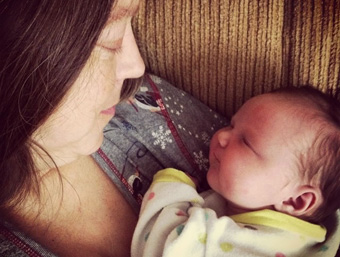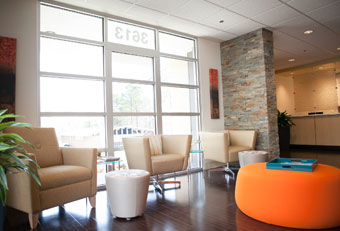 Dayri and Luis have traveled from Toa Alta, Puerto Rico for tubal ligation reversal surgery. They chose to place their trust in our ability to help them have more children and we were honored to have them as patients.
Dayri and Luis have traveled from Toa Alta, Puerto Rico for tubal ligation reversal surgery. They chose to place their trust in our ability to help them have more children and we were honored to have them as patients.
We frequently have international patients and I am always eager to share their story and reasons for traveling to us for sterilization reversal.
Tubal ligation records: Are they important?
Dayri is 29 years of age and has two children. She has always lived in Puerto Rico and she is a manager at Costco. She and Luis have been married for 5 years. Luis has a son from a previous marriage and he has been a member of the US Army for 10 years. Luis has served in both Iraq and Afghanistan. They live in Toa Alto, Puerto Rico.
Dayri had a common problem experienced by many of our patients. She did not have her tubal ligation records. She did have a pathology report, which revealed she had small 1cm segments removed from each tube but we did not have a description of the procedure.
It is fairly common to not have operative reports because most hospitals will destroy records after 10 years or more. It is even more common when women come from the Caribbean or Central America to not have records or to have simple handwritten notes which are barely readable.
Advice: Not having tubal ligation records
We advised Dayri to consider a screening laparoscopy because she did not have her complete records but, more importantly, because she was from the Caribbean.
We have seen a fair number of patients who come from Puerto Rico, the Caribbean, and Central and South America. Occasionally we find when tubal ligations were done in these areas they are sometimes very aggressive and damage large amounts of tube.
What is a screening laparoscopy?
 A screening laparoscopy allows us to insert a small camera
A screening laparoscopy allows us to insert a small camera
(no wider than a ball point pin) through a small incision inside the belly button after a patient has gone to sleep. This allows us to look directly at the fallopian tubes to determine if they are repairable.
If the tubes can be repaired then we make a larger 4 inch incision over the pubic hair area and complete the tubal repair. If the tubes are not repairable then we stop the surgery and place a small band-aid over the belly button and the patient gets a significant refund of their surgical fee.
Benefits of laparoscopy during tubal reversal?
A screening laparoscopy allows a quick evaluation of the tubes and provides a patient greater confidence her surgery will be successful.
To my knowledge we are the only practice that offers screening laparoscopy during tubal reversal surgery and a significant refund of their surgical fee …if the tubes are not repairable and if a patient chooses to have a laparoscopy.
 Daryi’s surgery went well. During the laparoscopy we determined her tubes could be repaired. Her surgery was 59 minutes.
Daryi’s surgery went well. During the laparoscopy we determined her tubes could be repaired. Her surgery was 59 minutes.
The estimated blood loss was 20 mls and her tubal lengths after repair were 4 and 3.5 cm. Her tubal lengths are evidence that her tubal ligation was more aggressive but not too aggressive where the tubes could not be repaired.
The typical fallopian tube is 8 to 12 cm long. Most of our patients average 5 cm after tubal reversal.
When 1 cm segments are removed (as in Dayri’s case) tubal lengths will often be 6 to 8 cm after reversal. Daryi’s resulting tubal length of 4 and 3.5 cm would suggest the doctor damaged more tube than was indicated by her pathology report but not so much that the tubes could they could not be repaired.
We don’t consider a repaired tube short unless the length is less than 2.5 cm…so Dayri’s tubes are more than adequate to allow pregnancy and her chance of pregnancy after reversal is approximately 62%.
Reversing Your Tubes: Is laparoscopy necessary?
Even with short tubes natural pregnancy is possible. If you will be having surgery at our center and are worried if your tubes can be repaired then consider a screening laparoscopy. Most patients will not need this procedure and our experienced nurses can provide you advice and answer any questions you may have about tubal reversal.
You can speak with a nurse by calling (919) 968-4656 during weekday business hours.
Submitted by Dr. Charles Monteith [subscribe2]









